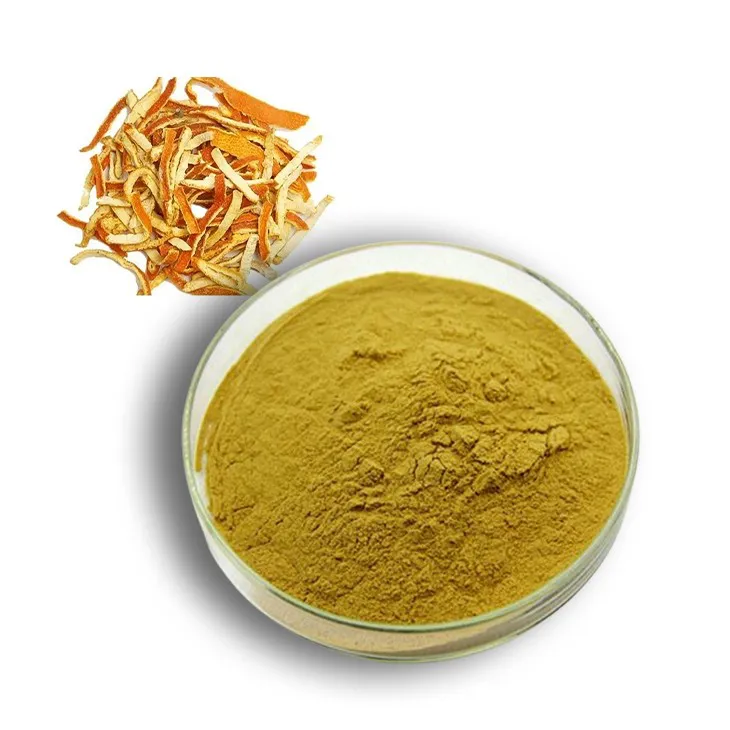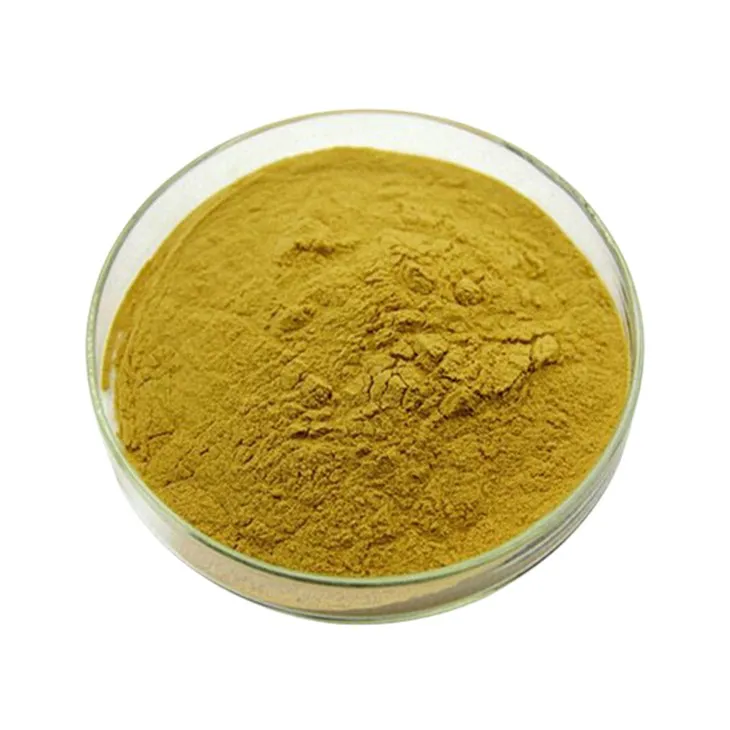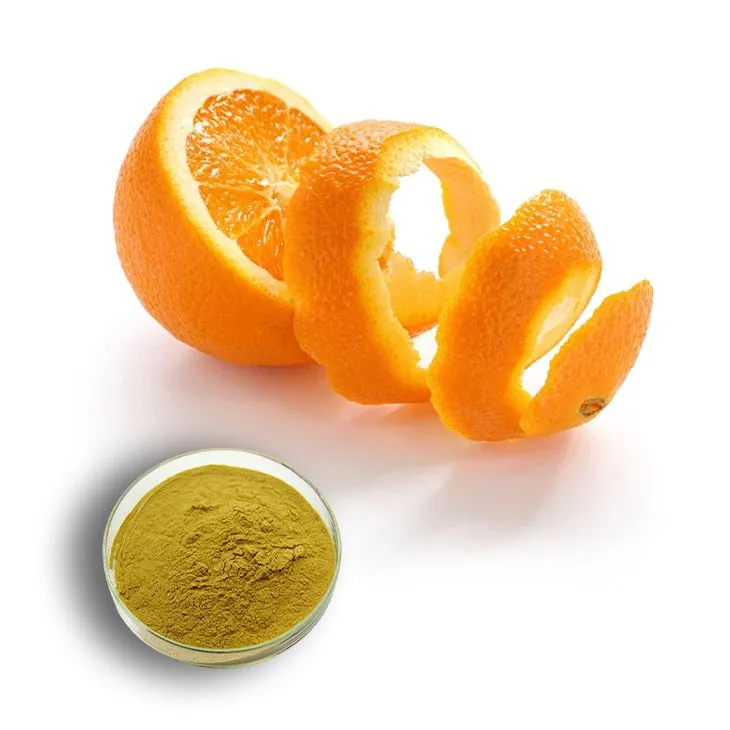- 0086-571-85302990
- sales@greenskybio.com
Hesperidin with the best reviews.
2024-11-30

1. Introduction to Hesperidin
Hesperidin is a flavonoid glycoside mainly found in the peel of citrus fruits, especially oranges. It has a unique chemical structure that consists of a flavanone backbone with a rutinoside moiety attached. This structure endows Hesperidin with a variety of biological activities, which have been the subject of extensive research in recent years.

2. Medical Significance of Hesperidin in Cardiovascular Health
2.1 Blood Pressure Regulation
Hesperidin plays a crucial role in cardiovascular health by helping to lower blood pressure. It achieves this by improving blood vessel function. When hesperidin is present in the body, it acts on the endothelial cells of blood vessels. These cells line the interior of blood vessels and play a key role in regulating vascular tone. Hesperidin promotes the release of nitric oxide (NO) from endothelial cells. Nitric oxide is a potent vasodilator, which means it causes blood vessels to relax and widen. By increasing the availability of nitric oxide, hesperidin reduces the resistance that blood encounters as it flows through the vessels. As a result, the heart doesn't have to work as hard to pump blood, and blood pressure is lowered. This effect is especially beneficial for individuals with hypertension or those at risk of developing high blood pressure.
2.2 Lipid Metabolism Regulation
Another important aspect of hesperidin's role in cardiovascular health is its impact on lipid metabolism. It helps to regulate cholesterol levels in the body. High levels of low - density lipoprotein (LDL) cholesterol, often referred to as "bad" cholesterol, are a major risk factor for the development of atherosclerotic plaques. Hesperidin has been shown to interfere with the absorption of dietary cholesterol in the intestines. It also promotes the breakdown of LDL cholesterol in the liver, reducing its concentration in the bloodstream. At the same time, hesperidin may increase the levels of high - density lipoprotein (HDL) cholesterol, which is known as "good" cholesterol. HDL cholesterol helps to remove excess cholesterol from the arteries and transport it back to the liver for excretion. By regulating cholesterol levels in this way, hesperidin helps to prevent the formation of atherosclerotic plaques, which can narrow the arteries and impede blood flow, leading to various cardiovascular diseases.

3. Role of Hesperidin in Digestion
Hesperidin can have a positive impact on the digestive system. It has the ability to stimulate the secretion of digestive juices. Digestive juices contain enzymes that are essential for breaking down food into smaller molecules that can be absorbed by the body. When hesperidin stimulates the secretion of these juices, it enhances the overall digestive function. For example, it can increase the production of gastric acid in the stomach, which is necessary for the initial digestion of proteins. In the small intestine, it may also enhance the activity of pancreatic enzymes that are involved in the digestion of carbohydrates, proteins, and fats. This improved digestive function can lead to better nutrient absorption and overall gut health.

4. Hesperidin in Scientific Research
4.1 Focus on Chemical Structure
In the field of scientific research, the unique chemical structure of hesperidin has become a major focus. Scientists are interested in understanding how the different components of its structure contribute to its biological activities. The flavanone part and the rutinoside moiety interact in ways that give hesperidin its antioxidant, anti - inflammatory, and other properties. By studying its chemical structure in detail, researchers hope to develop new drugs or therapeutic agents that can mimic or enhance the beneficial effects of hesperidin. For example, they may be able to design molecules that target specific receptors or enzymes in the body more effectively, based on the knowledge gained from studying hesperidin's structure.
4.2 Potential in New Drug Development
Hesperidin also holds great potential in new drug development. Its multiple biological activities make it a promising candidate for the treatment of various diseases. In addition to its applications in cardiovascular and digestive health, it has shown potential in the treatment of inflammatory diseases. Its anti - inflammatory properties can be harnessed to develop drugs for conditions such as arthritis. Moreover, its antioxidant activity may be useful in preventing oxidative stress - related diseases, such as neurodegenerative disorders. Scientists are exploring different ways to modify hesperidin or use it as a starting point for the synthesis of new compounds with enhanced pharmacological properties.

5. Role of Hesperidin in the Immune System
Hesperidin has a certain role in enhancing the immune system. The immune system is responsible for protecting the body from external pathogens such as bacteria, viruses, and fungi. Hesperidin can modulate the immune response in several ways. It can enhance the activity of immune cells, such as macrophages and lymphocytes. Macrophages are responsible for engulfing and destroying foreign invaders, while lymphocytes play a key role in recognizing and eliminating specific pathogens. Hesperidin may also stimulate the production of cytokines, which are signaling molecules that regulate the immune response. By strengthening the immune system, hesperidin helps the body to better defend itself against infections and diseases.
6. Conclusion
In conclusion, hesperidin is a remarkable substance with a wide range of beneficial effects. Its importance in cardiovascular health, digestion, scientific research, and the immune system cannot be overstated. As research continues to uncover more about its properties and potential applications, it is likely that hesperidin will play an even more significant role in the future. Whether it is through the development of new drugs or as a natural supplement for maintaining health, hesperidin has the potential to make a major impact on human well - being.
FAQ:
What is hesperidin?
Hesperidin is an orange peel glycoside. It is a substance that has many beneficial properties and has attracted significant attention in various fields such as medicine and scientific research.
How does hesperidin benefit cardiovascular health?
Hesperidin can help lower blood pressure by enhancing blood vessel function, increasing blood vessel elasticity and reducing resistance. Moreover, it has a positive influence on lipid metabolism, which aids in regulating cholesterol levels and preventing the formation of atherosclerotic plaques.
What is the role of hesperidin in digestion?
In terms of digestion, hesperidin can stimulate the secretion of digestive juices, thereby enhancing the digestive function.
Why is hesperidin studied in scientific research?
Its unique chemical structure has made it the focus of many studies. Scientists are continuously exploring its potential applications in new drug development and disease treatment.
How does hesperidin enhance the immune system?
Hesperidin helps the body better resist external pathogens, thus playing a certain role in enhancing the immune system.
Related literature
- The Pharmacological Properties of Hesperidin in Cardiovascular Protection"
- "Hesperidin: A Promising Compound for Digestive Health"
- "The Role of Hesperidin in Immune System Enhancement: Recent Research"
- ▶ Hesperidin
- ▶ Citrus Bioflavonoids
- ▶ Plant Extract
- ▶ lycopene
- ▶ Diosmin
- ▶ Grape seed extract
- ▶ Sea buckthorn Juice Powder
- ▶ Fruit Juice Powder
- ▶ Hops Extract
- ▶ Artichoke Extract
- ▶ Mushroom extract
- ▶ Astaxanthin
- ▶ Green Tea Extract
- ▶ Curcumin
- ▶ Horse Chestnut Extract
- ▶ Other Product
- ▶ Boswellia Serrata Extract
- ▶ Resveratrol
- ▶ Marigold Extract
- ▶ Grape Leaf Extract
- ▶ New Product
- ▶ Aminolevulinic acid
- ▶ Cranberry Extract
- ▶ Red Yeast Rice
- ▶ Red Wine Extract
-
Grape Seed Extract
2024-11-30
-
Genistein
2024-11-30
-
Cat Claw Extract
2024-11-30
-
Black Garlic Extract
2024-11-30
-
Citrus Aurantium Extract
2024-11-30
-
Thunder God Vine Extract
2024-11-30
-
Astaxanthin
2024-11-30
-
Beta Carotene
2024-11-30
-
Licorice Root Extract Powder
2024-11-30
-
Artichoke Leaf Extract
2024-11-30





















